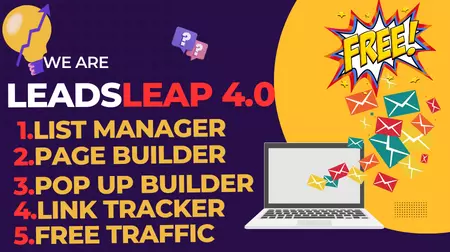The Meaning of Lead Generation Lead generation is a critical component of any successful marketing strategy, serving as the first step in converting prospects into loyal customers. At its core, lead generation involves identifying and attracting potential clients who have expressed interest in a product or service. This process not only lays the groundwork for future sales but also establishes a relationship that can cultivate trust and loyalty over time.
Effective lead generation encompasses various techniques and channels, including content marketing, social media campaigns, email outreach, and search engine optimization. Each method plays a unique role in capturing the attention of prospects by delivering valuable information tailored to their needs. For example, engaging blog posts can position your brand as an authority in your field while offering free resources such as eBooks or webinars can entice visitors to provide their contact information.
What is Lead Generation?
![Meaning of Lead Generation:Top lead Gen Secrets [+Free eBook] 2 Meaning of Lead Generation](https://freedomdad.net/wp-content/uploads/2022/08/Meaning-of-Lead-Generation-kkk.webp)
Lead generation is all about attracting potential customers, converting them into prospects, and eventually nurturing them into paying clients.
It's the process of sparking interest in your product or service by grabbing the attention of people who are already on the lookout for what you're offering. In other words, lead generation is the first step in building a successful relationship with your customers.
Why is Lead Generation Important for Businesses?
Driving Sales and Growth: In today’s competitive market, having a reliable lead generation strategy is essential. It helps businesses fill their sales pipeline with quality leads, ensuring a consistent flow of potential customers. Without lead generation, companies would have to rely on “hope” marketing, hoping people will just stumble upon their business. But with lead gen, you actively create opportunities to engage with new prospects and drive sales.
Understanding Your Audience: Lead generation also plays a crucial role in getting to know your target audience better. As you gather more data through the lead gen process, you can segment your audience and offer personalized solutions, making your marketing efforts much more effective.
Types of Leads
![Meaning of Lead Generation:Top lead Gen Secrets [+Free eBook] 3 hot cold and warm leads](https://freedomdad.net/wp-content/uploads/2022/08/hot-leads.webp)
Cold Leads: These are people who are unaware of your business and haven't shown interest in your products yet. Cold leads require the most nurturing before they are ready to buy.
Warm Leads: Warm leads are individuals who have interacted with your brand in some way. Maybe they've subscribed to your newsletter or downloaded a free resource from your website. They're not ready to purchase just yet, but they're interested.
Hot Leads: Hot leads are primed and ready to make a purchase. They’ve already shown significant interest, and with the right follow-up, they can be converted into paying customers.
The Lead Generation Process
Attracting Potential Customers: The first step is attracting visitors to your website or landing page. You can use strategies like content marketing, social media, and SEO to get their attention.
Capturing Information: Once you've attracted visitors, the next step is getting them to provide their contact information. This is typically done through forms on landing pages, pop-ups, or sign-up offers.
Nurturing Leads: After collecting a lead’s information, it’s crucial to nurture the relationship. Email sequences, personalized content, and regular follow-ups help to build trust and guide them through the sales funnel.
Common Lead Generation Strategies
Content Marketing: Content is king when it comes to lead generation. Blog posts, eBooks, and videos can attract new visitors and encourage them to learn more about your business.
SEO and Search Engine Marketing (SEM): By optimizing your website for search engines, you can increase visibility and drive organic traffic. Search engine marketing (paying for ads on search engines) can also provide immediate results.
Social Media Marketing: Platforms like Facebook, LinkedIn, and Instagram are ideal for reaching your target audience and generating leads through organic posts and paid ads.
Email Marketing: One of the oldest but most effective strategies, email marketing allows you to nurture relationships and convert leads into customers with personalized messages.
The Role of Landing Pages in Lead Gen
Why Landing Pages Matter: Landing pages are essential in lead generation because they are designed to convert. Unlike your homepage, a landing page is focused on one goal—getting visitors to provide their information.
Optimizing Landing Pages for Conversion: Use clear headlines, strong calls-to-action (CTAs), and persuasive copy to encourage conversions. A/B testing can also help identify what works best for your audience.
Lead Magnets: How to Create Irresistible Offers
What is a Lead Magnet? A lead magnet is an offer that provides value to potential customers in exchange for their contact details. It could be an eBook, whitepaper, or free trial.
Types of Lead Magnets: Some popular examples include free guides, templates, cheat sheets, or access to exclusive webinars. The key is to offer something that your audience finds valuable enough to give up their email address.
Best Practices for Creating Lead Magnets: When creating a lead magnet, make sure it's relevant to your audience and solves a specific problem they’re facing. Keep it simple but high in value.
Paid vs. Organic Lead Generation: Which is Better?
Paid Lead Generation Methods: This involves paying for ads, such as on Google, Facebook, or LinkedIn. The advantage of paid methods is that you can see results quickly.
Organic Lead Generation Methods: These rely on non-paid efforts like SEO, content marketing, and social media. While slower to produce results, organic methods build long-term credibility.
Combining Both Approaches: A mix of paid and organic lead generation is often the most effective strategy. Organic efforts provide sustainability, while paid ads can drive immediate traffic.
The Importance of Lead Scoring
What is Lead Scoring? Lead scoring is the process of assigning a value to each lead based on how likely they are to convert. You can score leads based on their behavior, engagement with your content, or demographics.
How to Implement an Effective Lead Scoring System: To get the most out of lead scoring, use a mix of manual and automated scoring. For example, assigning points based on actions like downloading an eBook, clicking on an email, or visiting a pricing page. This helps you focus your efforts on leads most likely to buy.
Get the Best Lead Generation tool online and It is free!!
Check it Out Now!!Tools for Lead Generation Success
The two best tools for capturing leads are Systeme.io and Leadsleap nothing beats these to powerful tools
CRM Tools for Managing Leads: Customer relationship management (CRM) systems like HubSpot, Salesforce, and Zoho CRM help you organize, track, and follow up with leads efficiently.
Lead Nurturing: Turning Prospects into Customers
How to Nurture Leads: Nurturing leads is all about staying top of mind. Use personalized email campaigns, retargeting ads, and helpful content to guide them through the buyer’s journey.
Importance of Follow-ups: A simple follow-up can make all the difference. People are busy, so it’s important to remind them about your offer and why it’s valuable.
Common Mistakes to Avoid in Lead Generation
Failing to Understand Your Audience: If you don't know who you're trying to attract, your lead generation efforts will miss the mark. Do thorough research and create detailed buyer personas.
Ignoring Data and Analytics: Data-driven marketing is the key to successful lead generation. Use tools like Google Analytics or CRM reports to measure what’s working and what’s not.
Secrets to Mastering Lead Generation
Personalization in Lead Generation: Customize your messaging for each segment of your audience. Personalized emails, landing pages, and ads resonate more with potential leads.
Leveraging Automation: Automation tools can streamline your lead generation process, saving you time while ensuring no lead slips through the cracks.
Building Trust with Potential Customers: Trust is the foundation of successful lead generation. Offering valuable content, showcasing social proof, and being transparent are all ways to build trust.
The Future of Lead Generation
Emerging Trends in Lead Generation: From AI-powered tools to conversational marketing, the future of lead generation is exciting. Voice search, chatbots, and hyper-personalization are shaping the way companies generate leads.
The Role of AI in Lead Gen: AI helps with automating tasks like lead scoring and nurturing. It can even predict which leads are most likely to convert based on past behavior.
Free Lead Generation eBook
What's Inside the eBook? Our free eBook covers in-depth strategies, tools, and tips for lead generation success. Learn how to build a winning lead gen strategy from scratch, identify top tools, and explore case studies from industry leaders.
How to Download the Free eBook: Simply enter your email on our lead magnet landing page, and we’ll send the eBook straight to your inbox!
Download Ebook Now (FREE)Conclusion
Lead generation is the lifeblood of any successful business. From understanding your audience and using the right tools to building trust and nurturing leads, there are many moving parts to get right. By implementing the tips and strategies shared here, you can generate more high-quality leads and turn them into loyal customers. Remember, lead generation isn't a one-time task—it's an ongoing process of attracting, nurturing, and converting prospects.
FAQs
What is a lead magnet?
A lead magnet is an incentive offered to potential customers in exchange for their contact information, usually in the form of an eBook, webinar, or free trial.
How can I optimize my landing pages for conversions?
Use clear headlines, strong CTAs, compelling visuals, and concise messaging to make your landing page easy to navigate and conversion-focused.
What’s the difference between cold and hot leads?
Cold leads are unaware of your product or service, while hot leads have shown strong interest and are ready to make a purchase.
What tools can help me manage leads effectively?
CRM tools like HubSpot, Salesforce, and Zoho CRM help track and manage leads throughout the buyer’s journey.






